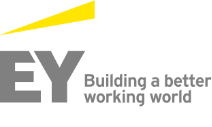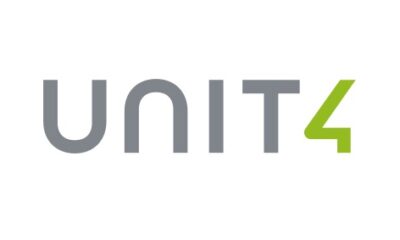## Mini basket to go here ##
Belonging – A red thread for change
This article was written by Jeannine Gant, our Diversity, Inclusion and Belonging Lead. If you would like to learn more about our DIBs solutions, please send an email to jeannine@emergingworld.com.
I’ve thought about belonging for years! It lives in my head rent free. I believe it stems from growing up as a Black girl in an all-White small town in Michigan where my mother told me I was a “raisin in the oatmeal”. I was one of three African Americans (one being my brother) at a high school with over 1300 students. I think you get the picture. I often did not feel like I belonged.
In my most recent role as the CEO of Big Brothers Big Sisters in Detroit, belonging to systems that show care and inclusion to opportunities without barriers was critical for youth and families plagued by generations of inequity. And it reinforced my belief that Maslow’s view of belonging as a “fundamental human requirement’ – one of the most potent sources of individual motivation and success”, is spot on. I see it as a red thread for all human beings, in all our spaces, from work to home and everything in between.
A red thread may be thought of as a connector or navigator that makes things make sense. The expression originates from Greek mythology where Theseus found his way out of the Minotaur’s labyrinth by following a “red thread” given to him by Ariadne. And in this case, a sense of belonging is a powerful red thread to create change, in our world and workplace.
 I hope to help companies foster cultures of belonging through my new role leading diversity, inclusion and belonging for Emerging World, an organization with a vision of creating a more inclusive, sustainable world where we are all more self-aware, continuously learn, collaboratively address critical issues, and have purpose. For those who may not be familiar with the work and approach of Emerging World, our purpose is about changing perspectives to shift business and shape a better future. The way we do that is through powerful immersive experiences – virtual or in person – where people are exposed to new perspectives and start seeing themselves and the world around them quite differently.
I hope to help companies foster cultures of belonging through my new role leading diversity, inclusion and belonging for Emerging World, an organization with a vision of creating a more inclusive, sustainable world where we are all more self-aware, continuously learn, collaboratively address critical issues, and have purpose. For those who may not be familiar with the work and approach of Emerging World, our purpose is about changing perspectives to shift business and shape a better future. The way we do that is through powerful immersive experiences – virtual or in person – where people are exposed to new perspectives and start seeing themselves and the world around them quite differently.
For me, it feels like the perfect place to carry my red thread. As I move along this purposeful path to do my part in creating a better world, I will share insight from learnings and experiences that might help you along your way as well. I heard Professor Margo Okazawa-Rey, an American professor emerita, educator, writer, and social justice activist, say that in this moment we need to put our “energy towards a culture of life”. She says using belonging to frame diversity, equity and inclusion will help us embrace all individuals for who they are and not based on our assumptions about nationality, race, disability, or gender. I’m looking forward to exploring this idea to create change within the hearts, minds, and actions of leaders and companies around the world.
With that in mind, a 2022 report on the Importance of Belonging, published by Simmons University, says belonging matters. 90 percent of respondents believe a sense of belonging is important in the workplace. In the report, when asked compared to others, do you think it’s easier or harder for you to feel a sense of belonging at work? 61% of Black respondents say it’s harder for them (36% somewhat harder and 25% much harder). For Asian respondents, 44% say it’s harder (31% somewhat and 13% much harder), while for White respondents, only 23% say it’s harder.
Being on the compliance end of things without a journey towards belonging, will not create environments that help people get the best out of themselves. (If you have an opportunity, check out Belonging at Work by Rhodes Peer on audible, with personal stories and practical strategies.) According to the Academy to Innovate HR’s 2022 Trends Review, “Even a workplace that has every intention of being DEI sometimes fails to retain employees from underrepresented groups because they don’t feel like they belong”. In these spaces, make sure redemption is a part of your framing. As my good friend, Heaster Wheeler, former CEO, NAACP in Detroit said, “In this journey, everyone is going to make mistakes and deserve redemption.”
I know diversity, inclusion and belonging, is personal and visceral. You must challenge your own core beliefs and values to create systemic change in workspaces and in our world. I spoke with Dr. Nicole Cutts, a Clinical Psychologist and an executive coach, who asked the rhetorical question, “Can you separate who you really are from work (a place where you spend a significant amount of your time) and be fully alive?”.
Let’s think about it this way, there are brilliant people of colour, women, next generation leaders, stakeholders and others who are looking for the wide-open windows in companies that are living up to their values and changing internal and external systems for the better. Some DEI-B leaders express concern that the window for creating more diverse, equitable and inclusive workplaces is being held open with a small stick, meaning a strong wind might blow it shut at any moment. But I’m certain, if you close the window towards belonging, those talented people will look elsewhere for that red thread.

Below is a case study from a diversity, inclusion and belonging solution created by Emerging World in partnership with Service Now, a software company with 16,000 employees. It was a remarkable strategy for imbedding the importance of DIB with your top leaders, as well as giving life to DIB beyond compliance. I’m genuinely interested in hearing what belonging means to you. Leave me a comment or send me an email to jeannine@emergingworld.com.







